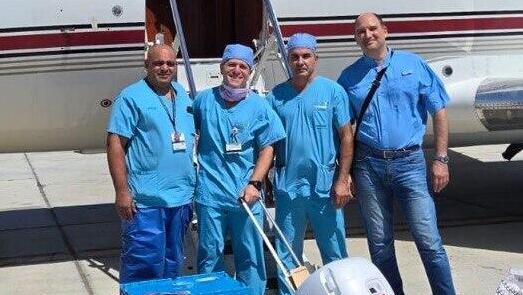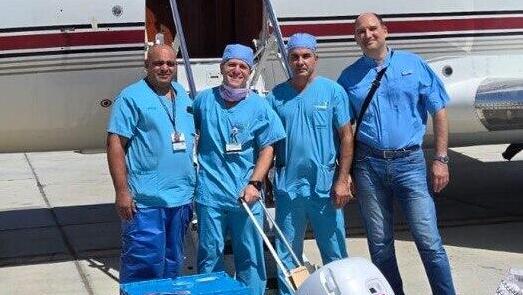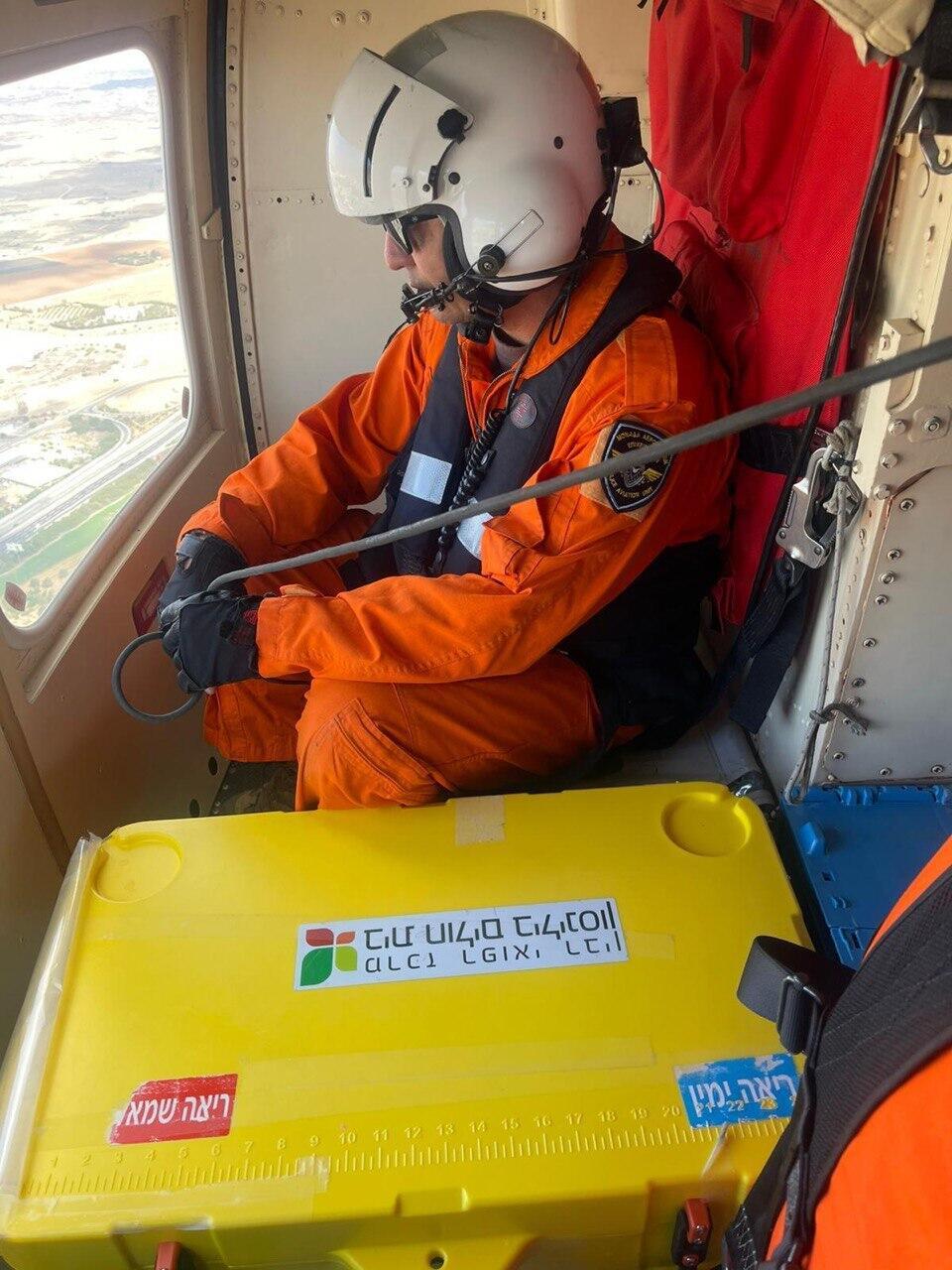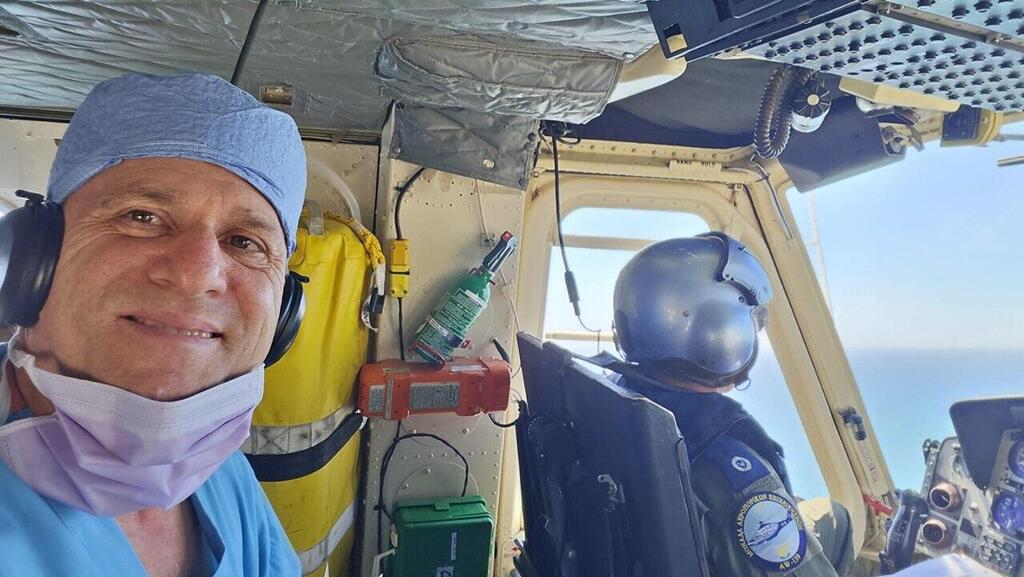In what felt more like the plot of a high-stakes action film than a medical procedure, a rare and complex organ transplant operation was carried out this week between Cyprus and Israel, saving the lives of two women and marking a historic milestone in Israeli medicine.
For the first time in 30 years, a heart donated abroad was transplanted in Israel.
A heart retrieved from a donor in Cyprus was flown by private plane and a Cyprus police helicopter under enormous time pressure to Rabin Medical Center (Beilinson Hospital) in Petah Tikva, where it was successfully transplanted into a 34-year-old woman suffering from severe heart failure. In the same operation, the donor’s lungs were transplanted into a 68-year-old woman battling advanced lung disease.
The entire operation relied on the coordinated efforts of dozens of professionals across two countries—including surgeons, police officers, helicopter pilots, aviation personnel and government officials.
The dramatic sequence began last Saturday when Dr. Tamar Ashkenazi, director of Israel’s National Transplant Center, received an email from her counterpart in Cyprus, offering the donation of a heart and lungs.
Immediately, Israeli teams launched into action.
“We began transferring medical information to verify the suitability of the organs,” said Ashkenazi. “At the same time, a logistical marathon began to secure a private plane and prepare the operating rooms in Nicosia for a 7:00 a.m. Sunday retrieval.”
With the help of Laufer Aviation, Israeli health officials tracked down an available private jet during the peak summer season—a challenging task in itself. Budgetary approvals, customs clearances and operational logistics were rushed through overnight. By 4:30 a.m. Sunday, the transplant team was at Ben Gurion Airport, medical coolers in hand, ready to fly.
Yuri Peysakhovich, director of Thoracic Surgery at Rabin Medical Center and a veteran of hundreds of transplants, led the mission. “A heart can survive outside the body for only four hours—and we were up to the task,” he said.
After the retrieval surgery concluded at 10:30 a.m. in Cyprus, the team was whisked by police helicopter to Larnaca Airport and boarded the plane back to Israel. By noon, they were already in operating rooms at Rabin Medical Center, racing against the clock.
“This kind of life-saving effort transcends borders,” said Peysakhovich. “It was incredibly moving to see how many people, in both countries, immediately mobilized to save lives.”
Even in such a carefully choreographed mission, hiccups occurred. The team’s driver in Cyprus broke down en route from Larnaca to Nicosia. Both the driver and vehicle had to be replaced. On the return, Cypriot authorities arranged for a police helicopter to bypass traffic and speed up transport.
“The cooperation with Cyprus was incredible,” said Ashkenazi. “Everyone we worked with was generous, kind and determined to help.”
Cyprus usually works with Greece on organ donations, but no suitable recipients were found there, allowing Israel to accept the organs—a rare opportunity.
As the heart and lungs made their way to Israel, Rabin Medical Center’s teams were already preparing for the transplants. Dozens of medical professionals were involved: anesthesiologists, nurses, technicians, heart-lung machine operators and transplant coordinators.
The heart transplant for the 34-year-old woman was performed by Dr. Ehud Jacobzon, Director of the Transplant Unit, alongside Prof. Dan Aravot, one of Israel’s most senior cardiac surgeons. The lung transplant was carried out by Dr. Israel Kuznitz, Prof. Erez Sharoni (Director of Cardiac Surgery), and Dr. Merav Rokach, a senior thoracic surgeon.
Both operations were successful, and the women are now recovering in the cardiothoracic intensive care unit, overseen by Dr. Dan Gorfil.
Dr. Ben Ben-Avraham, director of the Heart Failure Service at Rabin, was also part of the Cyprus team. “To understand how exceptional this was, you need to realize how rare it is to receive an altruistic donation from another country,” he said.
He recalls how, just before anesthesia, the 34-year-old patient—whom he has treated for five years—got nervous. “She didn’t know the heart was coming from Cyprus or that I was calling her from there. I told her: ‘I’m looking at the heart right now—it’s strong. This is your chance to live a new life.’”
Suffering from hereditary heart failure, the patient could barely walk 100 meters or climb a few stairs without stopping. “She needed IV meds every week or two just to function,” he explained.
Today, she is already walking freely around the ward. “It’s more than she could do in the last five years,” said Ben-Avraham.
The operation is not just a medical success—it’s a powerful reminder of the life-saving impact of organ donation.
“We have an amazing population that donates,” Ben-Avraham emphasized, “but we need more. Every organ donor saves multiple lives.”



